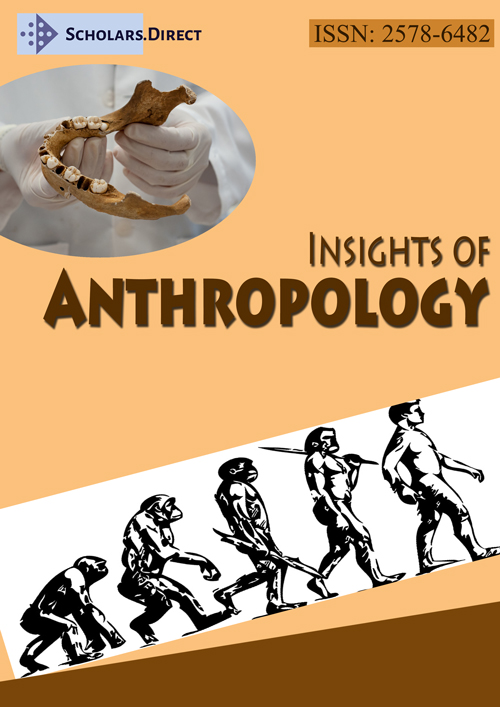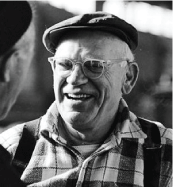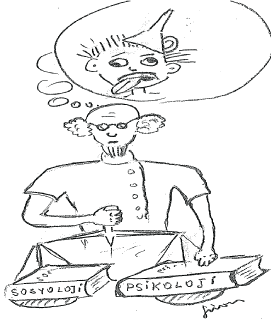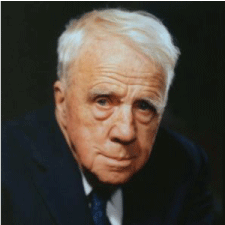Dialogue between an Upstart Social-Scientist and a Senior One, in Early-2000s
Abstract
This article contains texts extracted from the correspondence between an enthusiastic, newly-degreed sociologist, and an elderly one. In the past, the enthusiastic-sociologist was an engineering student, and as such, he used to underestimate the social sciences. Moreover; he would express his conviction about the social sciences, openly, whenever the chance presented itself. Now, after many years; he located the address of a former (and familiar) sociology professor, in order to submit his apology; on behalf of sociology! At present, not only does he appreciate the social sciences, he is now the owner of a Ph.D. degree in that field! In the meantime, his ideas had changed enormously. For the Emporkömmling (social-climbing)-Sociologist the need to establish such a dialogue is a compulsory rite, a sort of psychological relief; just like paying or initiating an ethical self-acquittal. Meanwhile; these exchanged messages are representative of the current scholarly debates regarding contemporary local or universal social issues.
Keywords
Sociology, Scholar, Ph.D., Degree, Social science
Brief Introduction
The body of this article contains actual letters and messages between an emeritus professor of sociology living in the United States, and a Turkish scholar, who, years after graduation from an engineering department of a distinguished university in Turkey, had begun post-graduate studies in sociology. These dialogues invariably involve fragments of debate on social science issues.
An Quotation from a Letter Addressed to the Sociology
Department of a Renowned University
"I obtained my Ph.D. degree in Sociology at Hacettepe University, in Ankara, in 1998. I would like to get in touch with Emeritus Professor of Sociology (R) through your assistance, if possible. (He had taught Sociology in Istanbul in early 1970s). As a matter of fact, I would appreciate it a lot if you could please somehow forward the enclosed letter of mine to the professor.
The letter is not of a confidential nature; you might as well go ahead and read it. I have a feeling that it is worthwhile to read such a letter for the sake of Sociology itself, anyhow!
I would hereby like to express my gratitude in advance for your would-be-help.
Respectfully yours,
p.s. Attached is the above-mentioned letter".
An excerpt from an e-mail message
Dear Sir; hello from Istanbul! Many thanks for your response to the e-mail message. A friend of mine read it aloud to me through the phone.
The reason is simple: I had used his e-Mail for communication, once your university provided the e-mail address of yours. I personally do not havea an e-Mail yet [1]. People with e-mail addresses in my proximity here in the work office do not know English, either (Figure 1).
aI think I am somewhat old fashioned when it comes to deal with highest technology of any sort. In this respect, I resemble a novel-character, Mr. Walnikoff, from The Black Marble [1] by Joseph Wambaugh. Walnikoff is a detective in California. The time is mid-1970s. He is a descendant of the White Russians, who had escaped from Russia by ship (from the port of Vladivostok), after the October Revolution. Having grown up with old legends of the lost land; he turned out as a romantic, nostalgic adult, who clings to the past values stubbornly. He even drives his official police car very slowly and if possible avoids the rush hours in traffic. He is fond of classical music, especially works of his compatriot Tchaikowski. He likes the company of old people and enjoys Russian food.I am mighty glad that you remembered me. I should acknowledge your strong memory. Being an emeritus professor for ten years already is a blessing. I am happy for you.
I am also grateful to the Sociology Department for having forwarded my letter to your postal address.
I send my respects and greetings. Yours faithfully,
A paraphrase of the above-mentioned letter
Dear Sir; I would like to start my letter by refreshing your memory: In the September month of 1971, you had arrived on the campus in Istanbul, with your family. Initially you had your lodging at the guest-house of the university, where I was also staying (a privilege granted me by the administration then, since I had found a summer job in Istanbul).
Your fraternization with an Engineering sophomore at the guest-house of the university right away, proved your humble and open personality, at the time.
Remember: On one occasion, I tried to tease you and said:
-"In my opinion social sciences, including sociology, constitute really unnecessary stuff for humanity".
You resorted with a composed, knowing reply:
-"Well, I used to think that way, too"
On another occasion, you must have smelled some smoke in the guest-house (which later proved to be false, fortunately) and said: "If the house catches fire, be ready to save yourself!" My reaction was the following: "We should try and save the building first!" whereupon you justly reaffirmed: "People are more important than property!" (To emphasize the message, you pronounced this sentence twice. Indeed, they are, I strongly agree, now).
Well, here I am, now a sociologist myself! (I received my MBA in 1992, years after my B.S. in Engineering. Soon after I started my Ph.D. dissertation at Hacettepe University. Graduation came in 1998.
On one hand, this is an irony of fate; but on the other hand, this is also a revenge of Sociology, itself! In fact, it is the very victory of Sociology, that glorious social science!
Indeed, I sometimes remembered you along the course of my thesis work. I guess all those recalling's do constitute an interesting case study!
Let me say that actually, long ago, I had intrinsically appreciated social sciences as a junior high school student, in my time. I had my highest grades in such social courses. Nevertheless, when I was on the verge of my freshman year; natural sciences, medicine and engineering projects began to play in my head, mainly because representatives of those very branches were enjoying the best prestige almost in all social stratifications of the society. Alas, I wavered and become a conformist like many other studious lycée graduates.
Those professions were also considered worthy of aspiration since admission to those programs was markedly more difficult. Even the grocer, greengrocer, the milkman and the butcher were urging nice, well-liked familiar high school students of the neighbourhood towards those perceived goals: "So, you are an outstanding student? Which kind of engineering will you pick up to study?" they would ask; taking it for granted that engineering would the best way to choose, as a career, in any case.
Sir; I would like to hear from you. Right now, I am not working as a sociologist, yet. But, I hope to get a part-time teaching job at a university; if I can ever arrange the necessary permission-traffic between the involved posts and institutions. Once I retire from my present government-office job, I may even end up as a permanent faculty-member somewhere, some day in the near future. Who knows? I am already full of excitement at the mere thought of it!
Enclosed is a somewhat younger photograph of mine to further refresh your visual memory.
Respectfully yours,
Still another letter addressed to the Emeritus-professor
Dear Professor:
I appreciate your letter dated April 25. Thanks for taking the time to reply. Let me point out that your little granddaughter in the picture is a lovely child. (We had no children despite long gynaecological treatments of my wife. C'est la vie/this is life. We Turks strongly believe in destiny, anyhow).
I will take your advice and obtain an e-mail address, the sooner the better. A humorous friend of mine, an official in Ankara, recently "gave me an order" to get an e-Mail address, too. He said he himself had been flying postal pigeons for communication until a few years ago; but once the pigeons died, he was obliged to buy a computer for his home.
So, your stay in Turkey was only for one year. Still, your experiences (Erlebnisse) must have greatly contributed to your case histories in your later classes back home, especially at points regarding differences in cultural matters. Just like the dolmush/collective-taxis, which you seem to remember vividly. By the way, today the dolmush practice is still going on in Istanbul city traffic; but they replaced the collective-taxis with collective-minibuses long ago.
Until recent times, I had stayed away from Istanbul for long periods, working for state-owned factories in the provinces.
I have some interesting homework papers from my Ph.D. study, all hand-written. I am considering to get to work, develop them, type them out and transform them into publishable articles: One is about feud in rural Turkey, another is about racial relations in the U.S. (as an outsider "third world" scholar, perceives it), still another is about youth movements.
I remember: While we were at the guest-house, on one occasion, I mentioned the contemporary philosopher Eric Hoffer (not as famous as his namesake Eric Fromm), in an attempt to come closest to sociology in friendly conversation [2]. (I knew about him through the praising of my former high school English teacher, an eager reader of his works. He would praise this philosophic dock-worker in his English class. He had been especially impressed by his work titled The True Believer) (Figure 2).
I then stressed that he, despite publishing books, had been doing manual work at the docks in New York harbor! Another new-comer at the lounge of the guest-house, a somewhat elderly American instructor (whose major was Math), made a grimace and gave a sigh, looking at me sideways contemptuously. He complained that his belongings (books and clothes) still had not arrived because of the labour union strikes at the docks. This was an implication that characters like Hoffer were the instigators of such worker movements and detrimental strikes.
I, on the spot, realized that, let alone being an admirable figure, this dock-laborer-philosopher was a menace for that other instructor's vested interests, at least as far as his feelings at the moment were concerned. But, sir, you did not react to Hoffer in the same manner, despite the fact that you were also in wait of your delayed shipments! There it is, indeed: The empathy of a sociologist!
Again, in the guest-house, before the commencement of classes, you once expressed your worries about a would-be language barrier between you and your new students. (Of course, in social sciences language is a matter of concern with respect to natural sciences, where numbers and formulas speak for themselves and enrich the communication process). You said approximately something like the following (Figure 3):
-" When I use the word 'individual' in my class, the American student will right away notice that it is not the same thing as 'person'; but I wonder if my Turkish students here would distinguish such shadings of connotation in the wording of the course".
Well, sir, it was a pleasure for me to type that letter. I wish you happiness all the time.
Yours faithfully,
The very first e-Message addressed to the Emeritus professor
Dear Sir,
I have just obtained an e-mail address, for myself. I began to employ it through the computer at my workplace. (Still no computer at home, isn't it funny?). We just returned from a nine-day-long holiday (sandwiched between two weekends). A religious festivity: Islamic sacrifice holiday.
Once I read a French legal medicine article (by [3]) implicitly demeaning this holiday. It was written in 1957 in Algeria, then a colony of France, and it referred to Moslem people's so-called propensity to handle (manier) knives with agility and dexterity, arising from especially religious (surtout religieux) long-established habitudes. Now; the three French forensic authors were quite mistakenb [4] about the main aim of this holiday, to begin with. The purpose of this specific Moslem festivity has an outweighing social aspect! It is divinely meant for the poor people and ensures their meat-feeding, at least once a year! Therefore, perhaps only the exclusively vegetarians might have a say against it, to be fair.
bMoreover; let us mention the fact that in 1957, the date of the article, Algerian people were waging a war of independence against French exploiters, who were not even representing the entire French people. The eager colonists would be so disappointed by the approvers of the independence that they would even attempt to assassinate President de Gaulle for his so-called mistake of surrendering the colony. A superb novel by Frederick Forsyth [4] deals with this theme. The secret ultra-nationalist organization does not even refrain from employing a foreign professional killer, in order to eradicate the president! To afford his high fee, the organization first indulges in a series of bank robberies within France.I am also glad that you are visiting Costa Rica, nowadays. I have just located Costa Rica on the map between Nicaragua and Panama. I think all Latin American countries resemble Turkey in many social aspects, one dominant characteristic being a high opinion of martial values. Until recent times, many Latin American countries had been shaking with coup d'états and as you point out, CR is an exception.
I vaguely remembered a passage about CR, which I had found interesting and took notes about, a few years ago. It was an extract from a passage given in a didactic English-exam by a friend of mine, a teacher of English in a high school. Probing into my academic archive I located those notes. It goes like this: CR is the Switzerland of Latin America. The army got abolished in late 1940s. Almost the entire state incomes are allocated for health and education. The average education level is accordingly high.
Do enjoy your winter vacation in that marvelous country!
Yours truly,
Still another e-Message
I indeed admire your travelling. I believe that travel is a prerogative of retired people. I have just finished (the German version of) a novel by Stephen King: The Dark Half [5]. A wonderful character is a surgeon, who had operated on the protagonist of the novel, a famous author, during his childhood. The sheriff of Castle Rock County gets in touch with the now-retiree-surgeon while he is on a camping vacation with his wife at Yellowstone Park. (The retired surgeon loves to travel!). The retired surgeon remembers the case mentioned by the sheriff and illuminates him on the phone about the involved problem. (The then-removed "tumor" was actually the vestige of a twin not successfully absorbed by the other fetes, the would-be-author of the future) (Figure 4).
No doubt, reading precious novels is a good hobby, too; but it is a vicarious pleasure not to be compared with actual live-experiences like travelling.
Regarding my humble opinion about your particular question; well, err; let me just say that too controversial social and/or political topics (really/honestly) do not appeal to my mind! I then simply feel as if "expenditure" of thought on such complicated issues would be a sheer waste of brain-energy; whereas dealing with less explored areas is more worthwhile. Indeed, just at the moment an association from Robert Forest happened to cross my mind as an association [6] (Figure 5):
"Two roads diverged in a yellow wood and I,
I took the one less travelled by!
And that has made all the difference".
Conclusion
Sociology took its own "revenge". Who was that engineering student who dared despise this wonderful Social Science, deeming it unnecessary, at the time? Ethics comes first, and factual science merely comes later, in importance. The universal values like the betterment of mankind are more closely associated with aspects of social sciences (like Sociology) than tangible improvements from the results of natural sciences. The past-engineer and present-sociologist, through this correspondence, in a sense got rid of his uneasy 'imprints' in his subconscious.
References
- Wambaugh J (1982) Ein guter Polizist [The Black Marble]. Heyne, Munchen.
- (1902-1983) Some digital knowledge about American Social Writer Eric Hoffer.
- Michaux A, Fourrier A, Thiodet J (1957) Particularites de la criminalite musulmane algerienne. In: Dervillee M, Seance extraordinaire de la societe de medecine legale et de criminologie de France. LYON, 303-3069.
- Forsyth Frederick (1988) Der Schakal [The Day of the Jackal]. (15th edn), Munchen, Zurich: R Piper, Co Verlag.
- King Stephen (1989) Stark [The Dark Half]. Presses Pocket, Paris.
- (1874-1963) Some digital knowledge about American Poet Robert Frost.
Corresponding Author
Sinan Çaya, Istinye University, Faculty of Sciences and Letters, Istanbul, Turkey.
Copyright
© 2017 Çaya S. This is an open-access article distributed under the terms of the Creative Commons Attribution License, which permits unrestricted use, distribution, and reproduction in any medium, provided the original author and source are credited.









